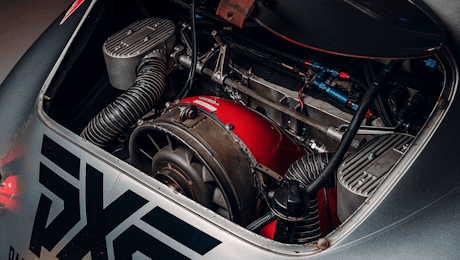What is horsepower? Plain English guide to HP, BHP, kW, PS and CV
December 02, 2021 by Ryan Hirons

If you’ve had a conversation about cars at all, you likely know of the term ‘horsepower’. But what is horsepower, exactly?
Well, this guide explains all about this measurement of power including what it means, how it’s calculated and what relation it actually has to horses.
What does horsepower mean?
What is horsepower? It’s a figure used to measure the power of an engine and is often abbreviated as hp. In simple terms, it’s how much ‘work’ the engine is capable of.
There’s more science behind a car’s speed than sheer power, but it does have one of the biggest impacts on the overall performance of a car — in particular, its ability to accelerate.

Though in the UK we use the term horsepower when referring to the metric measurement, it has other names elsewhere — and there’s a variety of other equivalent measurements too. Including:
- PS — this stands for pferdestarke in German, which literally translates to horsepower. This is the most commonly used measurement in Europe and is the exact equivalent to horsepower in measurement.
- CV — similarly to PS, this is a direct equivalent to horsepower. This is a French acronym, standing for chevaux-vapeur.
- bhp — brake horsepower is a term you may be familiar with, particularly if you read a lot of UK car magazines. More to come on this one.
- kW — this stands for kilowatt and, in terms of cars, is used most commonly in Europe for electric car power outputs. 1kW is the equivalent to about 1.3hp.
HP vs BHP
Traditionally in the UK, brake horsepower (bhp) has been the go-to measure of a car’s power. While hp does not take into account frictional losses in power from an engine, brake horsepower does — meaning hp is always higher than bhp.
The difference between the two is small on a 1:1 basis. 1hp is the equivalent to just under 0.99bhp, though scaled up you’ll notice differences. For example, a car with 300hp would then have 296bhp.

Manufacturers typically now publish power figures in horsepower, though old habits die hard — with a lot of traditional car magazines still using a conversion to bhp as the blanket measurement.
When comparing a car’s performance, make sure to compare like-for-like rather than hp vs bhp as a result. It doesn’t matter all that much what your preferred measurement is — although hp will always sound slightly more impressive if you’re boasting to your friends.
How is horsepower measured?
You may have heard theories that one horsepower is the equivalent to one horse, and that’s kind of true — just not in the way you may expect.
Horsepower is actually a completely made-up measurement. Back in the late 1760s, steam engine pioneer James Watt wanted to compare the effectiveness of his engines against the horse that previously did their work.
Watt defined one horsepower as the equivalent of the energy expended by a single horse raising 33,000 pounds of water one foot in the air from the bottom of a 1,000 foot deep well in 60 seconds.
Granted, that’s not an easy thing to imagine, but it did allow Watt a way to easily market his steam engines to potential customers.

Before you get ideas, manufacturers don’t plant cars in front of wells and pull water to work out how much performance they have nowadays. Rather, a device called a dynamometer (more commonly known as a dyno) is used to calculate its force.
How does horsepower impact a car’s performance?
As a simple rule, the more horsepower a car has — the faster it can go in a straight line.
An easy way to imagine the impact of more power is to imagine you’re pushing a car yourself. Now, if a friend came to help you, there’s more force behind it and thus you can push it faster, easier and further.
It’s not quite as simple as that, granted. For example, upgrading a 100hp car to have 200hp won’t make it twice as fast. There are other factors to consider — with key ones being weight, grip levels and aerodynamics.
Horsepower has less of an effect the higher your speed is, with aerodynamic efficiency playing an ever-more key part as you get faster.
FAQs: What is horsepower?
Does one horsepower equal one horse?
Horsepower was originally created based on a single horse lifting 33,000 pounds of water one foot in the air from the bottom of a 1,000 foot deep well. This was used by James Watt to provide context to the performance of his steam engines. So yes, it does equal one horse — but not quite in the way you may think.
What is considered good horsepower in a car?
‘Good’ horsepower is very subjective depending on the car. Other factors such as weight, mechanical grip, aerodynamics and even just the purpose of the car need to be taken into account.
What horsepower does my car have?
A quick search on the internet should be able to uncover a manufacturer’s stated figure for your car. If you’d like to find out the exact performance of your car, you can hire a dyno session to have it measured.
What’s the difference between horsepower and torque?
Horsepower is a measurement of how rapidly a car’s engine can work. Torque is the peak measurement of the rotational force within an engine.